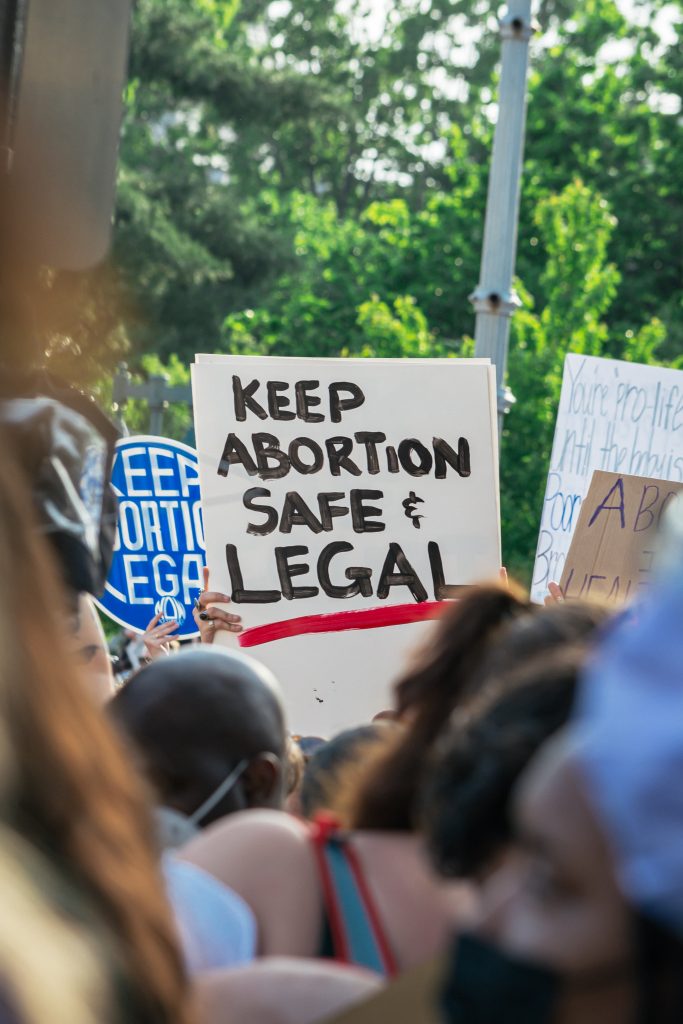A patchwork of access: abortion across borders
The news that Roe v. Wade is likely to be overturned sent shockwaves through activist communities across the US and beyond. Although the decision was a long time coming given the rollback of rights across different states, the reality facing people seeking abortions across the US is one of a patchwork of access, with those in the South facing the most barriers to care.

As individual states and activist groups in the US begin to pivot their plans to continue delivering life-saving care in a post-Roe world, there’s a question as to how much help international groups can provide, beyond funding and advocacy. This is particularly pertinent given the rise in pills-by-post schemes over the past decade, which have allowed early abortions to occur through the use of two pills; mifepristone and misoprostol.
Cross-border abortion support is not new. Across the world, there are countless examples of movements creating networks that defy borders and anti-choice laws to provide abortions.
Cross-border abortion support is not new. Across the world, there are countless examples of movements creating networks that defy borders and anti-choice laws to provide abortions. One of the biggest, Abortion without Borders, is an initiative of six organisations across multiple countries working together to help people from Poland to access abortions at home with pills or abroad in clinics. The collaborative sitting underneath this umbrella offers different services that seek to counter the draconian laws currently in place in Poland, which permit abortion only in situations of risk to the life or health of a pregnant woman, or if a pregnancy results from rape. For example, Kobiety W Sieci operates as the first line of support via an information line for Polish women and people needing help, where they will then be passed on, based on needs, to another of their organisations. Another organisation, Abortion Network Amsterdam, supports people from Poland and other countries to come to the Netherlands to have an abortion, providing them with accommodation and paying for their procedure.
The success of Abortion Without Borders and similar groups relies on thinking creatively and finding loopholes in regulations to continue the fight against anti-choice laws. Another famous example is detailed in the documentary Vessel, which follows Dutch organisation Women on Waves as they use maritime laws to their advantage to dock ships off the coast of countries where abortion was illegal to provide care onboard. Scenes from the documentary evince the palpable anger of local politicians and anti-choice activists as they stand at the edge of the dock, watching as women are provided with abortion care just beyond their jurisdiction Abortion activists by manipulating the law to their advantage continue to play an integral role in their ability to ensure access to safe abortions for women and others.
For the US, eyes will be on Canada and Mexico as the closest border countries able to support access to abortion, particularly surgical abortion, which is required between 13 to 20 weeks. The Canadian Minister of Families, Karina Gould, already told CBS News that Americans could access services in Canada if they wanted to: “If they, people, come here and need access, certainly, you know, that’s a service that would be provided”. But beyond politicians in these countries reaffirming support, it will be up to women’s movements to organise themselves effectively so that when the time comes, they can respond quickly and creatively.
But beyond politicians in these countries reaffirming support, it will be up to women’s movements to organise themselves effectively so that when the time comes, they can respond quickly and creatively.
The arbitrary borders that define our everyday lives play such a vital role in the fight for bodily autonomy and the next few months and years in the US will show how those battles will play out. For those of us observing from afar, it’s important we strengthen networks countering these cruel and oppressive rules and embody the practice that abortion has no borders.

Wallis is a communications professional who has worked across both government and the third sector, with a focus on health. She holds an M.Sc in Political Communication from the University of Amsterdam where her research focused on the media’s coverage of the Irish abortion debate prior to the referendum on the 8th amendment. Wallis is passionate about securing reproductive health and rights for everyone and has volunteered with organisations working in this space.
